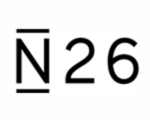When you are looking to make an international money transfer, there are a number of options available to you, from banks to non-bank foreign exchange specialists.
How do money transfer companies make money?
The most important thing to understand is that you will be charged a fee by any foreign exchange provider that you use. There’s a tendency in the market for companies to advertise ‘‘fee free’’ or ‘‘commission free’’ deals. In reality, these are simply marketing slogans.
Foreign exchange providers make money in two ways:
1. A transaction fee.
Commissions taken by banks or brokers are obvious to consumers. They are normally stated upfront. For example, Bank A in the UK may charge you a fixed transaction fee of £20 to make an international payment from the UK to France. This is the most visible type of fee associated with an international money transfer.
2. Margin added to the real exchange rate
All providers profit from the ‘markup’ added to the real exchange rate. This is known as the ‘hidden fee’ and is often where the largest profit centres are for foreign exchange providers. The difference between the real ‘mid-market’ exchange rate and the exchange rate you are offered is known as the ‘markup’ or ‘margin’ applied. Typically, non-bank foreign exchange specialists apply much tighter margins to the ‘real exchange rate’ than traditional banks.
Sending small amounts of money to friends and family
There are a number of ways to send money overseas. If you need to get money to family in a hurry and convenience is key, providers like Western Union tend to be the most popular options. Their ‘Money in Minutes’ service is extremely convenient. Bear in mind, these services though to come at a cost. Whilst the exchange rates offered are not the most competitive, for certain currency pairings they are often the most realistic option.
New entrants to the market like CurrencyFair & Transferwise, who adopt peer to peer technology, are now offering a fantastic online option for sending small amounts of money abroad. Each month, they are adding new available currencies and well worth a look.
As a starting point, it’s useful to compare money transfer options with MyCurrencyTransfer.com real time foreign exchange comparison calculator.
Sending large sums of money
When you start thinking about sending larger sums of money, you really have to be conscious of the true cost of your international money transfer. Here, the two principle options are bank versus non-bank foreign exchange specialist.
When making large purchases, such as buying an overseas property, emigrating or importing a car, the difference between 3-5% exchange rate markups, as banks tend to charge, and the sub 1% charged by specialist brokers really is significant. On each payment, it’s worthwhile to shop around and compare like for like the exchange rate offered by at least two different providers.
Non-bank specialist foreign exchange companies
Hefty savings can be made when using a currency broker for sending large amounts of money abroad. Typically, they offer superb exchange rates with low margins and often no transaction fees. The business model of these companies involves vast numbers of financial exchange transactions and huge currency turnover. The sheer volume means they are able to keep margins very tight and still make profit. As with many walks of life, it’s best to go with a specialist if you want to receive the best service.
Lastly, when using a non-bank foreign exchange specialist, ensure they are authorised and regulated, and use segregated client funds to safeguard your transfer.
MyCurrencyTransfer.com top tips:
- Don’t settle for the first deal you stumble across. Get multiple quotes on each transfer
- Only use banks to transfer money abroad as a last resort. Currency brokers come out overall cheapest
- Only use an FCA regulated currency company with a proven track record. You can check the FCA register to ensure the company you use is regulated.
To compare FCA regulated foreign exchange companies, MyCurrencyTransfer.com is usually a good starting point.





